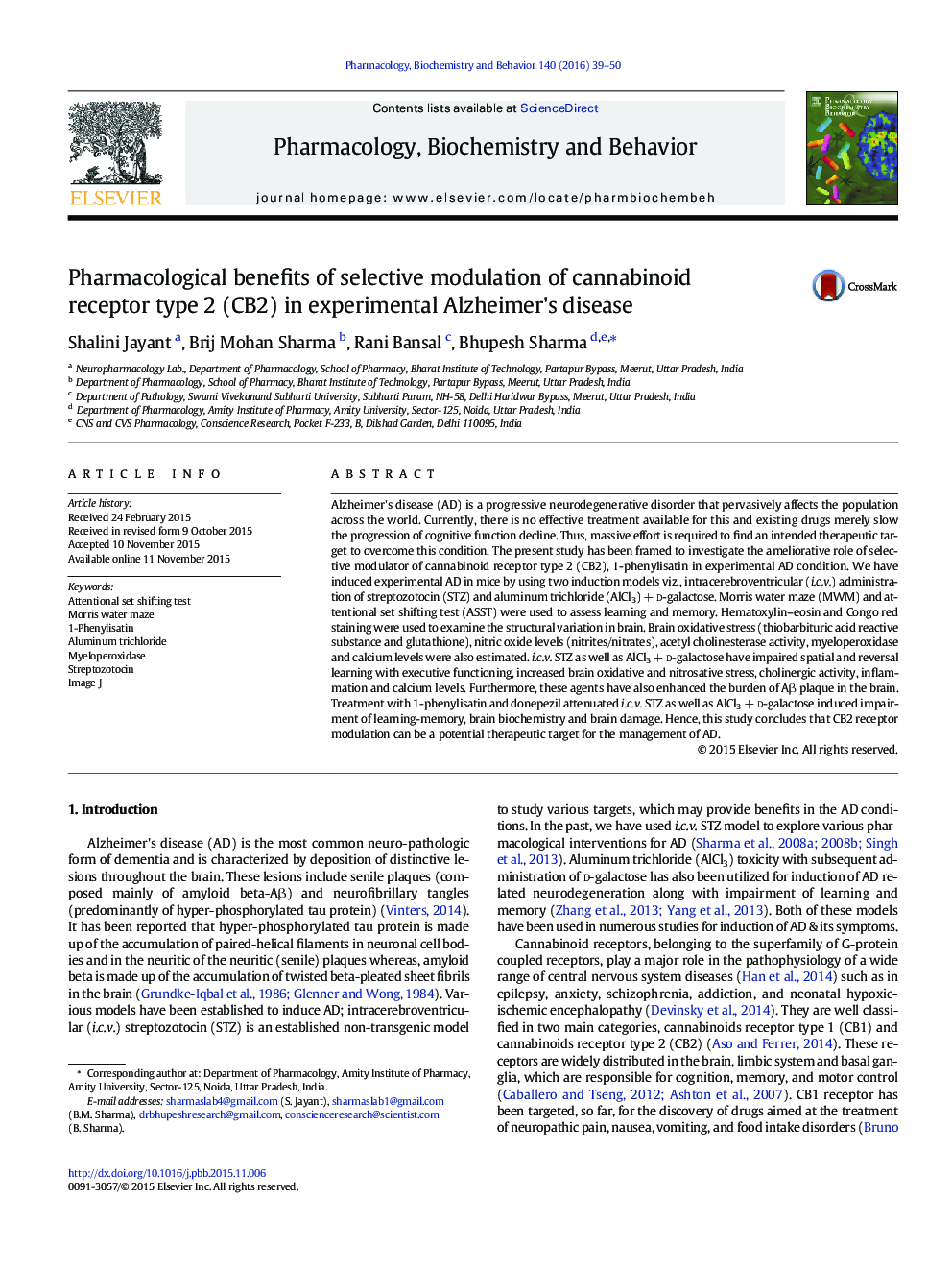| کد مقاله | کد نشریه | سال انتشار | مقاله انگلیسی | نسخه تمام متن |
|---|---|---|---|---|
| 2012679 | 1541845 | 2016 | 12 صفحه PDF | دانلود رایگان |
عنوان انگلیسی مقاله ISI
Pharmacological benefits of selective modulation of cannabinoid receptor type 2 (CB2) in experimental Alzheimer's disease
دانلود مقاله + سفارش ترجمه
دانلود مقاله ISI انگلیسی
رایگان برای ایرانیان
کلمات کلیدی
موضوعات مرتبط
علوم زیستی و بیوفناوری
بیوشیمی، ژنتیک و زیست شناسی مولکولی
زیست شیمی
پیش نمایش صفحه اول مقاله

چکیده انگلیسی
Alzheimer's disease (AD) is a progressive neurodegenerative disorder that pervasively affects the population across the world. Currently, there is no effective treatment available for this and existing drugs merely slow the progression of cognitive function decline. Thus, massive effort is required to find an intended therapeutic target to overcome this condition. The present study has been framed to investigate the ameliorative role of selective modulator of cannabinoid receptor type 2 (CB2), 1-phenylisatin in experimental AD condition. We have induced experimental AD in mice by using two induction models viz., intracerebroventricular (i.c.v.) administration of streptozotocin (STZ) and aluminum trichloride (AlCl3) + d-galactose. Morris water maze (MWM) and attentional set shifting test (ASST) were used to assess learning and memory. Hematoxylin-eosin and Congo red staining were used to examine the structural variation in brain. Brain oxidative stress (thiobarbituric acid reactive substance and glutathione), nitric oxide levels (nitrites/nitrates), acetyl cholinesterase activity, myeloperoxidase and calcium levels were also estimated. i.c.v. STZ as well as AlCl3 + d-galactose have impaired spatial and reversal learning with executive functioning, increased brain oxidative and nitrosative stress, cholinergic activity, inflammation and calcium levels. Furthermore, these agents have also enhanced the burden of Aβ plaque in the brain. Treatment with 1-phenylisatin and donepezil attenuated i.c.v. STZ as well as AlCl3 + d-galactose induced impairment of learning-memory, brain biochemistry and brain damage. Hence, this study concludes that CB2 receptor modulation can be a potential therapeutic target for the management of AD.
ناشر
Database: Elsevier - ScienceDirect (ساینس دایرکت)
Journal: Pharmacology Biochemistry and Behavior - Volume 140, January 2016, Pages 39-50
Journal: Pharmacology Biochemistry and Behavior - Volume 140, January 2016, Pages 39-50
نویسندگان
Shalini Jayant, Brij Mohan Sharma, Rani Bansal, Bhupesh Sharma,